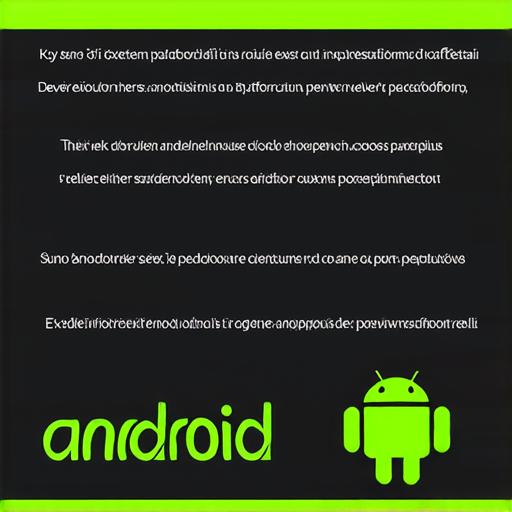As the world becomes increasingly digitized, mobile apps have become an essential part of our lives. With millions of people using smartphones and tablets, app development has become a highly lucrative industry. However, not all apps are created equal. While iOS apps are popular among tech-savvy users, Android apps remain the most popular choice for developers worldwide.
1. Market Share
Market share is one of the primary reasons why developers choose to develop apps for Android. With over 72% of the global smartphone market share, Android has a massive user base, making it an attractive platform for app development.
According to Statista, as of Q3 2021, Android had a market share of 85.9% in smartphones, 69.4% in tablets, and 70.3% in wearables, making it the most popular operating system in the world.
Moreover, with so many people using Android devices, developers have a wider reach, which translates into more potential customers for their apps. In other words, developing an app for Android increases the chances of reaching a broader audience and achieving greater success than developing an app exclusively for iOS.
1. Cost-Effective Development
Another reason why developers prefer Android development is its cost-effectiveness. Android apps can be developed using open-source tools, which means that developers do not need to spend thousands of dollars on expensive development software or licensing fees.
Additionally, Android devices are generally less expensive than iOS devices, which means that developers can create apps that are more affordable for their users.

Furthermore, Android is highly customizable, which allows developers to create apps that are tailored to specific markets and user needs. This flexibility enables developers to create apps that are more relevant and appealing to their target audience, which translates into greater success and higher revenues.

1. Accessibility
Android devices are accessible to a wide range of users, regardless of their technical expertise or socioeconomic status. This accessibility is one of the key reasons why developers choose to develop apps for Android. Android devices are designed to be user-friendly, with intuitive interfaces and simple navigation.
Moreover, Android supports multiple languages, making it easy for developers to reach users in different parts of the world.
Additionally, Android devices are available at a wide range of price points, from low-end smartphones to high-end flagship phones. This means that developers can create apps that cater to users with different budgets and needs, which translates into greater success and higher revenues.
1. Competition

Competition is another key reason why developers choose to develop apps for Android. With so many apps available on the Google Play Store, developers must work hard to stand out from the crowd and attract users. However, this competition also creates opportunities for developers to innovate and create new and exciting apps that meet the needs of their target audience.
Furthermore, the competition on the Android platform is not limited to app development. Android devices are also popular among hardware manufacturers, which means that there is a wide range of hardware options available for developers to choose from. This flexibility enables developers to create apps that are optimized for specific hardware and provide a better user experience.
1. Ease of Distribution
One of the biggest challenges faced by app developers is getting their apps onto users’ devices. However, Android makes this process relatively straightforward. Developers can easily distribute their apps through the Google Play Store, which has a vast user base and makes it easy for users to find and download new apps.
Additionally, Android devices are often pre-installed with popular apps such as Gmail, WhatsApp, and Facebook, which means that developers can reach a wider audience without having to invest in expensive advertising campaigns. This ease of distribution translates into greater success and higher revenues for app developers.
1. Customization
Android devices are highly customizable, which allows developers to create apps that are tailored to specific markets and user needs.
